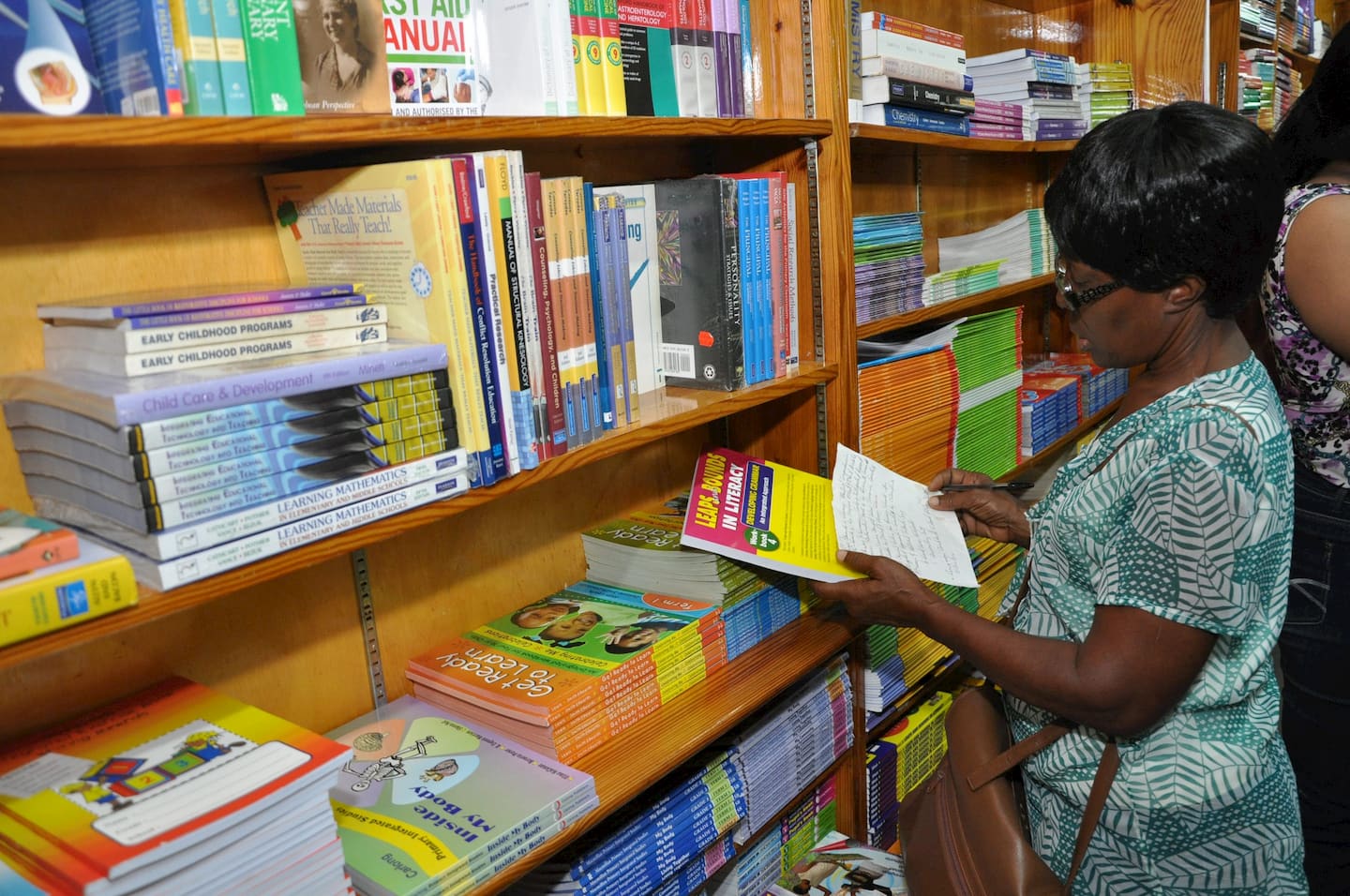The informed estimate is that an average of textbook costs, per student, across all grades in Jamaican schools this year would be in the region of $20,000. Probably more when you look at some of the two-page book lists.
Multiply that by the approximately 500,000 students in the system, and gasp at the sum of upwards of $10 billion which parents and government spend, notionally and actually on these items every year. Notionally, only because a good third or more of school youth never get all the books which their school requires or recommends. And the results show it.
Then, there are those who buy the books and never use them, and those who have them but don’t know how to read them. And, as we learned last week, there are times when the wrong books appear on the book lists which are supposed to be vetted and pruned before issue, not to mention those books whose authors or publishers have special ways of having them placed as essential or highly-recommended items. The system is inefficient at best; a wasteful mess at worst.
On Thursday, November 28, the highly respected Permanent Secretary in the Ministry of Education advised the Public Accounts Committee of Parliament that the texts provided by the government to every student ought to be adequate material for learning. That is an ideal viewpoint not shared by the majority of educators. But, would that it were so, what a saving that would be!
Peter Bunting, the opposition spokesman on education and training, is suggesting a way in which billions can be saved and considerable strides achieved in transforming school outcomes. Since it is estimated that some 80 per cent of schools have internet access, equip each student with a modest laptop and provide, virtually and under publishers’ license, all the required and recommended texts.
A laptop, properly used by already tech-savvy youngsters and monitored by appropriately retrained teachers, could flip the classroom and be used for homework assignments, research, and most dramatically, for the sharing of expert teaching across campuses.
The cost of the instrument will probably not exceed the current cost of a year’s textbooks, have much-expanded use for inquiry, recreation and further learning and not involve a heavy recurrent cost. And the royalties to publishers for all the material are likely to be a fraction of the billions the government spends on school books now.
Relieved of this yearly up-front cost, parents and those who assist schoolers, would be in a better position to contribute the auxiliary fees, which, despite the political cant, are more than ever needed to assure quality outcomes. Do it this way and watch how quickly money will be available to banish the shift system.
This measure could help balance the unequal opportunities for students in varied schools. Use the laptop or the ubiquitous smartphone to expose everyone to the best teachers and infrastructure. Instruction could be arranged to involve opportunities for responsiveness and lectures, laboratory and workshop sessions could be repeated at minimal or no cost.
The Tablets in School programme needs to be reconfigured in light of these options. Afford laptops, not tablets, and promote Bring Your Own Device. Structured virtual education, delivered through the most modern technology, is the real purpose for the fast-dwindling Universal Access Fund.
Classroom teachers will benefit from a partnership with expert practitioners in delivering quality instruction, affording them time to offer individual attention to students and to integrate more character-enhancing activities into classroom life.
Between 2012 and 2014, the process of preparing the curriculum for distance presentation began. It ought to have been given higher priority than it was. The rapid and fulsome introduction of technology induces puzzlement and defensiveness among many. I hope we have cleared that hurdle by this.
Laptops, rather than textbooks, and all the possibilities cascading from that change is no panacea for equal opportunity and quality teaching and learning, but recommends itself in place of the lumbering 19th and 20th-century textbook regimen. And since it will save money and usher in competencies appropriate to the new economy, discourse towards implementation ought to be a priority for all who appreciate that Jamaica’s progress depends almost entirely on the appropriate enskilling of all – not only a fortunate few.
Viewpoints is committed to expanding its range of opinions and commentary. Share your views about this or any of our articles. Email feedback to viewpoints@gleanerjm.com.







